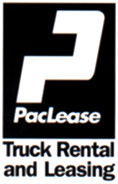PacLease Passes Along Tax Savings from Bonus Depreciation Through Lower Lease Rates
 Jul 22, 2011 | in
Jul 22, 2011 | in  Business / Finance
Business / Finance For U.S. companies concerned about what the modified accelerated-cost recovery system bonus depreciation could do to their cash flows, future income tax liabilities or their fleet acquisition plans, there is an alternative.
“There’s a misconception that truck fleets must purchase their trucks in order to take advantage of the tax savings available from the federal legislation passed late last year,” said Olen Hunter, national sales director of PACCAR Leasing (PacLease). “But that’s not the case since PacLease incorporated the reduction into its lease program by reducing its lease rates. This allows customers to take full advantage of the bonus depreciation without all the potential downsides.”
By leasing their trucks through PacLease instead of purchasing them, companies can even out their cash flows throughout the life of the trucks,* Hunter said. Plus, for each truck that a company leases using bonus depreciation, it can save the company nearly $11,000 over the typical life of a 5-year lease. That’s money it could use for other purposes.
How does that happen? Assuming a tax rate of 34 percent and an interest rate of 6 percent, a company purchasing a Class 8 truck that costs $125,000 would pay nearly $20,000 in interest over the life of the loan and receive a tax depreciation benefit of about $42,500, all of it in the first year, Hunter said. At the end of the loan, after selling the truck, it would cost about $106,700, which includes other tax benefits, estimated proceeds from the sale, income taxes on the proceeds from the sale and projected preventive maintenance expenses. If the company instead chose leasing through PacLease, the net cash outlay, after tax, would be approximately $10,000 less than the cost of ownership.
Companies that buy trucks to take advantage of the bonus depreciation could end up changing their fleet acquisition plans, he added. Placing a larger than usual number of new trucks in their fleets, by pulling forward their purchasing plans, can have implications for their operational budget three or four years down the road after warranties expire and maintenance costs jump as components wear out and must be replaced or repaired.
By leasing their trucks, companies don’t take on responsibility for maintenance, Hunter said. That’s included in the cost of full-service leasing. And they don’t have to deal with selling the truck when it comes time to dispose of it and acquire a replacement unit.
But time is of the essence, Hunter said. When Congress extended and expanded the bonus depreciation provision late last year, it required that companies take delivery of the equipment and that it be ready for use by Dec. 31, 2011. The Tax Relief, Unemployment Insurance Reauthorization and Job Creation Act of 2010, extended the bonus depreciation provision from Sept. 8, 2010, through the end of 2011, according to the U.S. Internal Revenue Service. For the year 2012, the bonus depreciation will revert back to 50 percent for all qualifying assets placed into service through Dec. 31, 2012.
“OEM build schedules are filling up quickly,” Hunter said. “Because of PacLease’s relationship with truck manufacturers Kenworth and Peterbilt, PacLease has pre-arranged build slots that it can offer to leasing customers. But since the build slots are filling, companies shouldn’t wait until the third or fourth quarter to place orders, particularly for popular aerodynamic and hybrid diesel-electric models. If they wait until the third or fourth quarter, there may not be enough time for the trucks to be manufactured and delivered by Dec. 31.
“Before deciding whether to buy or lease trucks and employ the bonus depreciation, companies should conduct what’s called a net present value analysis of the lease or loan payment stream,” Hunter said. “This allows them to make comparisons between financing alternatives, reviewing the payments in today’s dollar value.”
*PacLease recommends companies consult with a tax professional regarding bonus depreciation and its implications for their operations.



